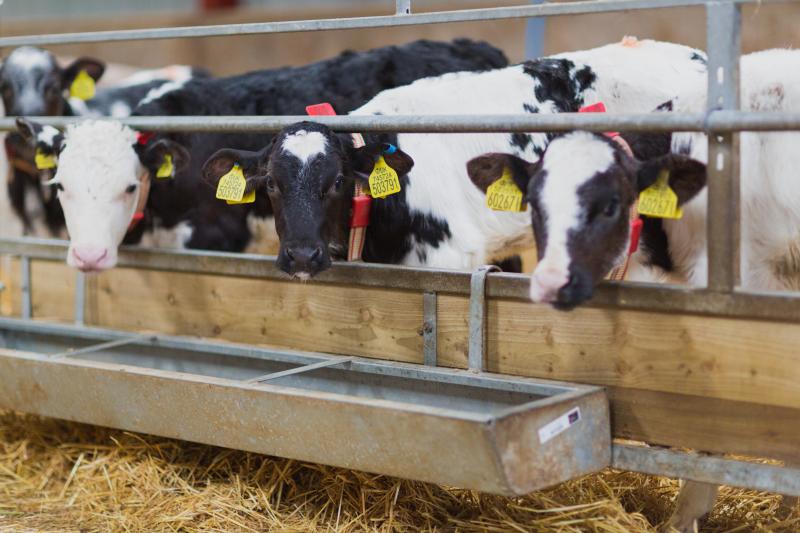
BBC Young Farmer of the Year has spoken about the seriousness of calf pneumonia on his family-run farm.
According to the Department for Environment, Food & Rural Affairs (DEFRA), approximately 160,000 calves die annually as a result of pneumonia and related illnesses, causing a potential loss of £99 million to the sector.
Pneumonia is one of the biggest issues that calf rearers can face. Due to their weakened immune systems, weaned calves are more vulnerable to contracting viruses, such as bovine respiratory syncytical virus, bovine virus 1, bovine rhinotracheitis, parainfluenza-3-virus, bovine coronavirus and lungworm; all of which contribute to calves contracting pneumonia.
The illness can result in serious implications that impact the calf’s welfare, causing loss of form and stunted growth, which both contribute to poorer yields and productivity. If additional conditions are present it may also lead to lower food conversion rates, laboured breathing and stress.
Someone who understands the seriousness of calf pneumonia first-hand is calf rearer and BBC Young Farmer of the Year 2012, Rhys Lewis, who deals with pneumonia at his family-run farm in West Glamorgan, South Wales.
A problem with pneumonia
As an experienced calf rearer, Rhys has an average turnaround of 70 to 80 calves every few weeks.
However, last year when Rhys came to move 50 young stock into another shed, he noticed that something was seriously wrong.
One week into the relocation, Rhys was forced to call on his local vet who concluded that his stock had contracted pneumonia.
At risk of losing his young calves, immediate action was taken to vaccinate every calf and treat them with a dose of antibiotics and anti-inflammatories.
These unexpected vet bills had an instant financial effect, which Rhys knew could be catastrophic should a serious outbreak of pneumonia occur again.
Ventilation
It is well-known that cattle housed in sheds with bad ventilation are far more susceptible to infection, as places that have stagnant and stale air, retain bacteria and viruses, which are passed on to livestock.
Local vet, Gareth Mulligan, commented: “Pneumonia is probably one of the biggest problems that calf rearers can come up against. It has major implications, not just in terms of the welfare of the calves but also in terms of reduced weight gain.
“Preventing calves from getting pneumonia is an essential element to good calf rearing practice, and I believe that ventilation plays an important role in reducing pneumonia. However, it is vital that this ventilation is with fresh air and without draughts.”
Rhys therefore decided to test the air movement in the building using smoke pellets. This simple test showed that the smoke was not being removed quick enough, which highlighted a ventilation issue that needed to be addressed immediately to prevent further problems with pneumonia.
In order to keep his cattle at their healthiest, Rhys opted for a solution that would allow the built-up warm, stagnant air to escape from the building, whilst allowing fresh air to be introduced in a controlled manner.
